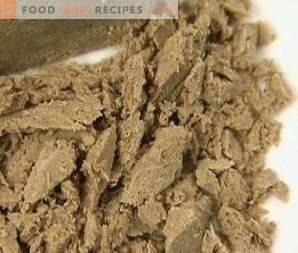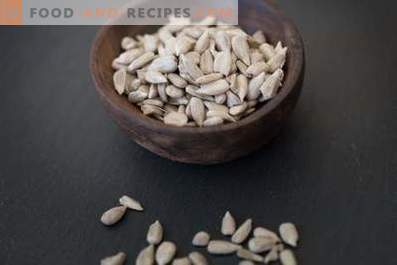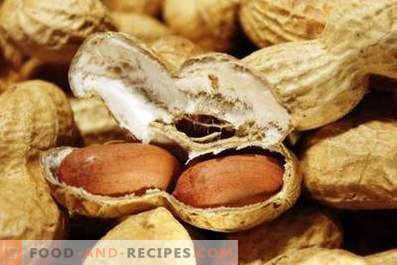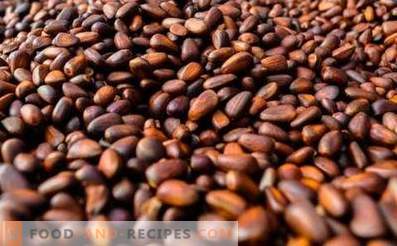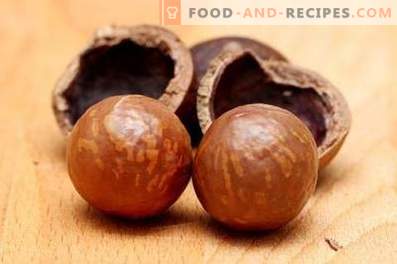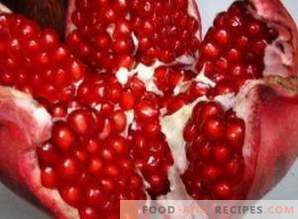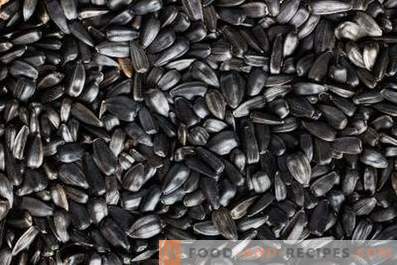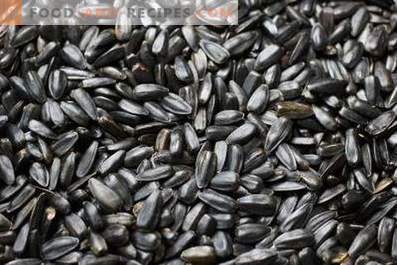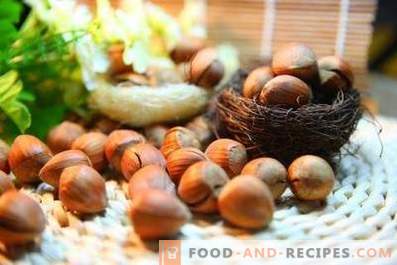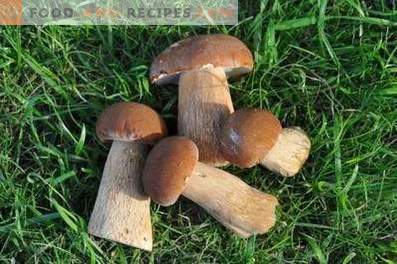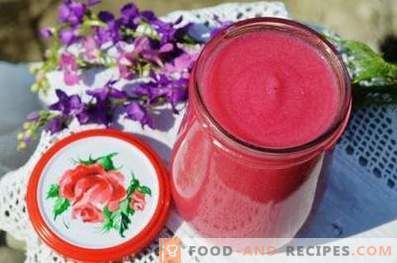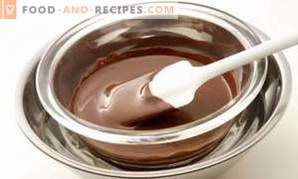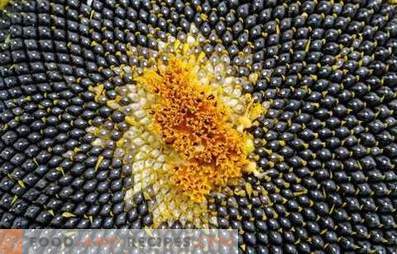
Sunflower (sunflower) is a plant belonging to the Astrov family. The native land of this species is North America. During archaeological excavations, data were obtained confirming that sunflower was cultivated in the present state of New Mexico already 1900 years ago. Moreover, for local residents, this plant was a symbol of the sun god.
The first sunflower seeds were introduced to Europe at the beginning of the 16th century by the Spanish conquistadors. Initially, the plant was cultivated in European gardens as an ornamental. However, later, in the second half of the 17th century, sunflower seeds began to be actively used for food and medical purposes.
Sunflower came to Russia at the beginning of the 18th century. Peter I, who had studied shipbuilding skills in Holland, noticed this bright, unusual plant and ordered to send home a bag of its seeds. The sunflower quickly acclimatized on the Russian lands and became one of the most popular ornamental, gryznyh and oilseeds.
Sunflower is an annual herb with a long (up to 2, 7 meters in height) stem covered with thin stiff hairs. Its green oval-heart-shaped leaf blades, sitting on elongated petioles, grow up to 40 mm in length and 45 mm in width. Bright yellow tubular flowers of a sunflower are collected in the big inflorescences baskets reaching 550 mm in the diameter. Reed marginal flowers with a yellow or orange color, grow to 70 mm in length. Sunflower fruits are oblate ovoid-ovate seeds having a gray, black, white or striped leathery pericarp. Under the pericarp (that is, under the so-called husk) lies a pale beige kernel, covered with a thin seed coat. Sunflower seeds - a valuable food product that is consumed in food in fresh, fried or dried form. In addition, the seeds of this plant are used to prepare fruit and vegetable salads, sweets, vegetable oil, cosmetic and medical supplies.
Nutritional value of sunflower seeds and vitamins in their composition
Nutritional value sunflower seeds (per 100 g weight):
- 20, 687 g of proteins;
- 52, 817 g of fat;
- 10, 448 g of carbohydrates;
- 3, 379 g of sugars;
- 5, 913 g of fiber;
- 7, 819 g of water;
- 2, 872 g of ash;
- 31, 769 g of omega-6 fatty acids;
- 12, 487 g of omega-9 fatty acids;
- 7, 084 g of starch, dextrins.
Vitamins in sunflower seeds (per 100 g weight portion):
- 1, 129 mg of pantothenic acid (B5);
- 31, 178 mg of tocopherol equivalent (E);
- 226, 916 μg folate (B9);
- 4, 946 μg of retinol equivalent (A);
- 0, 176 mg of riboflavin (B2);
- 15, 694 mg of niacin equivalent (PP);
- 1, 344 mg of pyridoxine (B6);
- 0, 026 mg beta-carotene;
- 54, 991 mg of choline (B4);
- 1, 838 mg of thiamine (B1).
Caloric content of sunflower seeds
- Caloric value of raw sunflower seeds (100 g) - 584, 938 kcal.
- Caloric content of one sunflower seed (average weight - 0, 05 g) - 0, 292 kcal.
- Caloric content of roasted sunflower seeds (100 g) - 591, 871 kcal.
- Caloric content of sunflower oil (100 g) - 898, 977 kcal.
- The caloric content of sunflower seed kozinaki (100 g) is 577, 114 kcal.
- Calorie content of sunflower halva (100 g) - 526, 464 kcal.
Useful elements in the composition of sunflower seeds
Trace elements in sunflower seeds (in portions weighing 100 g):
- 6, 089 mg of iron;
- 4,990 mg of zinc;
- 52, 884 mcg of selenium;
- 1, 946 mg of manganese.
Macroelements in sunflower seeds (in portions weighing 100 g):
- 366, 799 mg of calcium;
- 529, 878 mg of phosphorus;
- 159, 816 mg of sodium;
- 316, 617 mg of magnesium;
- 646, 909 mg of potassium.
Useful properties of sunflower seeds
- The kernels of sunflower seeds contain fiber, necessary for normal functioning of the digestive system. Dietary fiber helps to eliminate harmful substances from the body.
- Compounds present in sunflower seeds increase the potency in men and have a positive effect on the reproductive system in women.
- Regular consumption of sunflower seeds helps prevent the development of vitamin deficiency.
- Vitamins and beneficial elements present in the composition of sunflower seeds positively affect the nervous system, help to cope with neuroses, depressive states, sudden mood swings, and minimize the negative effects of stress on the body.
- Sunflower seeds - a rich source of vitamin E. This compound is a powerful natural antioxidant that protects cells from the action of free radicals, slows the aging process, is responsible for the health of the mucous membranes and skin.
- Sunflower seeds contain a large amount of proteins of plant origin. Athletes, vegans, and people who, for whatever reason, have to stop eating meat and dairy products, can use them as an additional source of protein.
- Sunflower seeds contain phytosterols and other compounds that help eliminate excess cholesterol from the body. Regular consumption helps reduce the risk of cholesterol deposits on the walls of blood vessels.
- The composition of sunflower seeds contains vitamins of group B, the amino acid arginine and other compounds that strengthen the walls of blood vessels, giving them elasticity. These substances help to reduce the level of homocysteine in the human body, prevent the development of vein thrombosis and heart ischemia.
- Calcium and other substances contained in raw sunflower seeds help strengthen bone tissue and speed up bone repair processes after fractures and other injuries.
- Folk healers recommend that people suffering from insomnia and other somnologicheskimi disorders, eat 45-65 g of treated sunflower seeds each day.
- The composition of sunflower seeds contains substances that strengthen the muscular system and accelerate the processes of recovery of the body after serious loads. Athletes and those engaged in heavy physical labor are recommended to eat 55-78 g of the fruits of this plant daily.
- A decoction of seeds treats cough in persons suffering from bronchitis. To prepare a remedy, seeds of this plant (30 g) are poured with boiling water (450 mg) and boiled until? part of the liquid will not evaporate. Broth filter and drink 20 g to 3 times a day.
- Raw sunflower seeds are an effective remedy for hypertension. To prepare a drug that can normalize blood pressure, 250 g of seeds are poured with a liter of water and boiled for 2 hours. Ready broth filter and take 150 ml per day for 2 weeks. After the end of this period, make a break for 5 days and repeat the course of therapy.
- Sunflower seeds are a natural source of iron and other compounds that positively affect the functioning of the hematopoietic system.
- Substances contained in sunflower seeds help to reduce the unpleasant symptoms of menopause.
Benefits of Sunflower Oil
- Sunflower oil is used to grind diseased joints.
- Useful components contained in the oil of sunflower seeds help to eliminate violations in the liver and biliary system.
- Sunflower oil is used to make masks that improve the structure of the hair, giving it a healthy and beautiful shine.
- Oil, squeezed from sunflower seeds, has softening, regenerating and moisturizing properties, effectively smoothes shallow wrinkles. That is why it is actively used in cosmetology for the manufacture of nourishing creams for skin, scrubs, formulations for wraps and other cosmetic and hygienic preparations.
- Linoleic acid contained in the oil of sunflower seeds strengthens the immune system, helps the body to resist infections.
- Sunflower oil is one of the key ingredients for ointments and other external folk medicine products.
- Sunflower seed oil is a rich source of unsaturated fatty acids that the human body cannot produce on its own. Compounds belonging to this group not only help prevent the development of most cardiological diseases, but also accelerate fat metabolism in the body. Thus, moderate consumption of sunflower oil contributes to weight loss.
- Oil squeezed from sunflower seeds is used as a laxative agent (take 2 tablespoons on an empty stomach).
Contraindications and harm to sunflower seeds
- Sunflower seeds - high-fat, high-calorie product. Excessive consumption of seeds can contribute to a set of excess weight.
- The habit of breaking the shells of sunflower seeds with your teeth can cause damage to the tooth enamel and the development of caries.
- Abuse of sunflower seeds can cause stomach upset and heartburn.
- Cadmium and lead accumulate in the seeds of sunflowers growing in regions with unfavorable environmental conditions. Getting into the human body along with seeds, these metals provoke the development of hypertension, kidney disease, diseases of bone tissue and other pathologies. On average, 100 g of sunflower seeds contain about 0, 019 mg of cadmium. At the same time, the safe daily dose of this metal for the human body is 0, 069 mg per day.
- Carcinogenic substances are formed during calcination of oil squeezed from sunflower seeds. That is why nutritionists recommend minimizing the time of roasting products and never use one portion of oil for cooking fried food twice.



